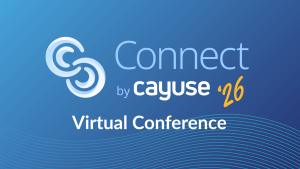Blog
The Grant Lifecycle: How to Improve Pre-award Processes
- Government
- Healthcare
- Higher Education
- Life Sciences
- Nonprofit
“The grant lifecycle” refers to all the phases of a research grant: from the initial idea about what to research and submitting a proposal to receiving funding, doing the actual research, and reporting on the findings and how funding was spent. Each phase of the grant lifecycle has its own set of specific requirements for reporting, accounting, administration, and management.
Usually the grant lifecycle gets split into two parts: pre-award and post-award.
- The pre-award phase typically includes searching for funding, developing proposals, and working with internal teams on grant applications.
- The post-award phase typically includes project setup, documentation, award management, grant and contract analysis, effort certification, and finally award close-out and reporting.
Each federal funding agency issues its own mandates related to the grant lifecycle. For example, the CDC requires grantees to submit a variety of programmatic and financial reports which are due at specific times during the lifecycle of a grant award. All reports must be accurate, complete, and submitted on time.
Pre-award challenges
The pre-award phase is full of challenges (this free whitepaper breaks down how to solve the most common ones). Many organizations try to manually manage the entire grants lifecycle with paper-based reports, spreadsheets, and silos of information. While the organization may eventually complete all the required steps throughout the cycle, there is often wasted effort, administrative bottlenecks, and duplicate data entry.
During the pre-award phase, this approach can quickly break down. That’s because the pre-award phase involves many internal parties and departments that need to collaborate.
For example, a typical Office of Sponsored Research at a research university is usually tasked with pre-award activities that cover the “cradle-to-submission” process for proposals. Tasks include looking for funding opportunities, tracking the approval process for grant submissions, managing commonly requested information for grant applications, and managing forms and policies.
An Office of Sponsored Research may help develop the proposal and budget, provide background information and documentation for audit reports, help obtain or provide institutional approval signatures, and solve submission problems. When the office uses spreadsheets, paper, emails, Access reports, or other standalone systems, the complex pre-award phase can be extremely time-consuming and prone to error.
Grants management software for pre-award administration
Leading research institutions avoid the problems of manual administration by using grants management software to handle the pre-award phase. By automating each step, documentation flows from one central source. Approvals and proposal review happen electronically, with minimal manual intervention.
Grant management systems can even automate the preparation of financial reports mandated by federal agencies, which are due at specific times during the lifecycle of a grant award.
Other areas of pre-award administration that are significantly improved with an automated solution include:
- Tracking the number of submissions. Software makes it easy to ensure you’re maintaining an adequate funding pipeline. Monitoring future proposals requires tracking the number being submitted, who is submitting them, the amount of future funding, anticipated start dates, etc.
- Monitoring success rates. An automated system can help measure success rates by investigator and by funding agency to identify who may need help with proposal development.
- Managing resubmissions. It’s a best practice to centrally manage documentation and financial reports associated with resubmissions. This helps encourage the modification and resubmission of rejected proposals when appropriate.
- Automating current and pending support. Tracking current and pending support is necessary for the creation of Current and Pending Support or Other Support pages needed for the submissions to NSF, NIH, and other federal agencies. Automating their generation speeds up proposal development. Like in post-award administration, these areas involve different administrative functions and can be streamlined with grants management software solutions.
Grant lifecycle next steps
This blog post took a high-level view of the pre-award phase and how research institutions can work smarter. In another post, we look at the post-award phase, offering best practices to improve project start up, documentation, award management, grant and contract analysis, effort certification and other key areas.
Looking for insight into improving your grant lifecycle? We’ll show you how an automated solution streamlines operations, minimizes errors and lets research organizations work smarter. Get in touch today!

